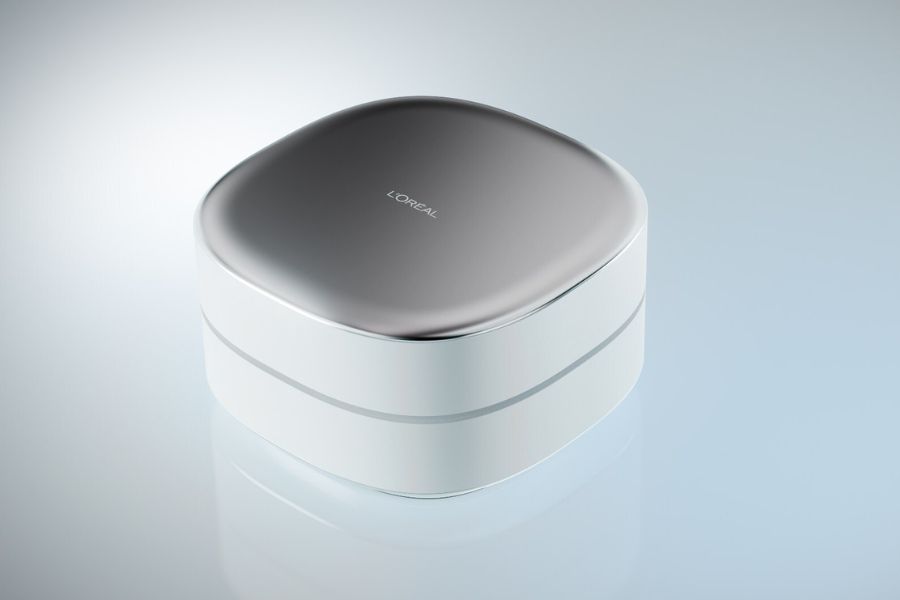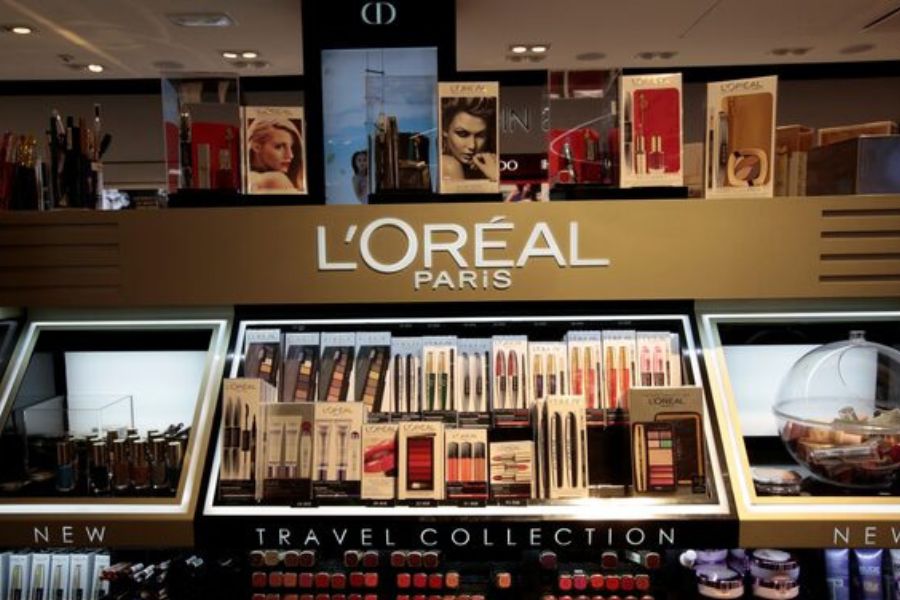L’Oréal unveils a revolutionary new device, the Cell BioPrint, at CES 2025. This portable, lab-on-a-chip technology promises to revolutionize personalized skincare by analyzing skin health in just five minutes. Starting with the L’Oréal brand, the device is slated for a pilot program in Asia in 2025.
Developed in partnership with Korean startup NanoEnTek, the Cell BioPrint leverages cutting-edge proteomics – the study of proteins and their role in aging – to provide a deep understanding of an individual’s skin. It’s like having a mini skin lab at your fingertips.
Also Read: Consumer Spending Increases on Innovative D2C Brands Than Large FMCG Companies
How does it work?
The process is simple and non-invasive. A special strip is placed on the cheek and then put into a solution. This solution is then loaded into a cartridge, which is inserted into the Cell BioPrint machine. The device analyzes specific protein markers in the skin, giving insights into its biological age and overall health. Simultaneously, a separate device, Skin Connect, takes facial images and gathers information through a short questionnaire about aging and skin concerns.
L’Oréal’s revolutionary device goes beyond just identifying current skin issues. It can predict potential problems before they even appear, allowing users to take preventative measures. It also provides personalized product recommendations based on the individual’s skin profile, taking the guesswork out of skincare. For example, it can assess how the skin responds to key ingredients like retinol, ensuring users choose the right products for their needs.
Also Read: Dr. Blossom Kochhar Releases 5th Book, the Glow Getter’s Guide to Everyday Skincare
Combined with NanoEntek’s microfluidic lab-on-a-chip technology, this innovation is the result of decades of research by L’Oréal’s Advanced Research team. The Cell BioPrint represents a significant leap forward in personalized skincare, empowering consumers with the knowledge they need to maintain healthy, youthful-looking skin. The device’s ability to analyze skin at a molecular level opens up new possibilities for targeted skincare solutions. L’Oréal believes this technology will transform the way people understand and care for their skin.







